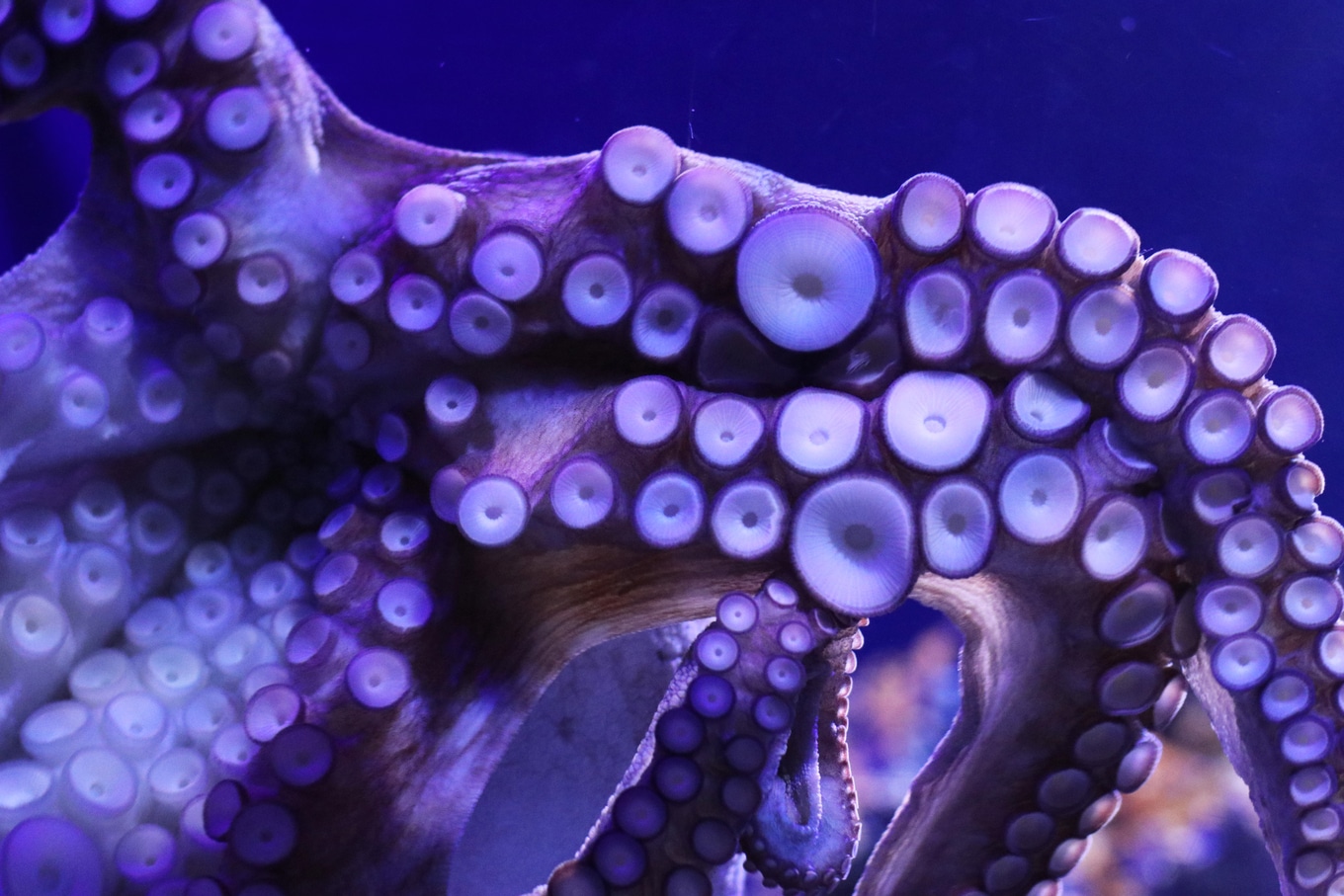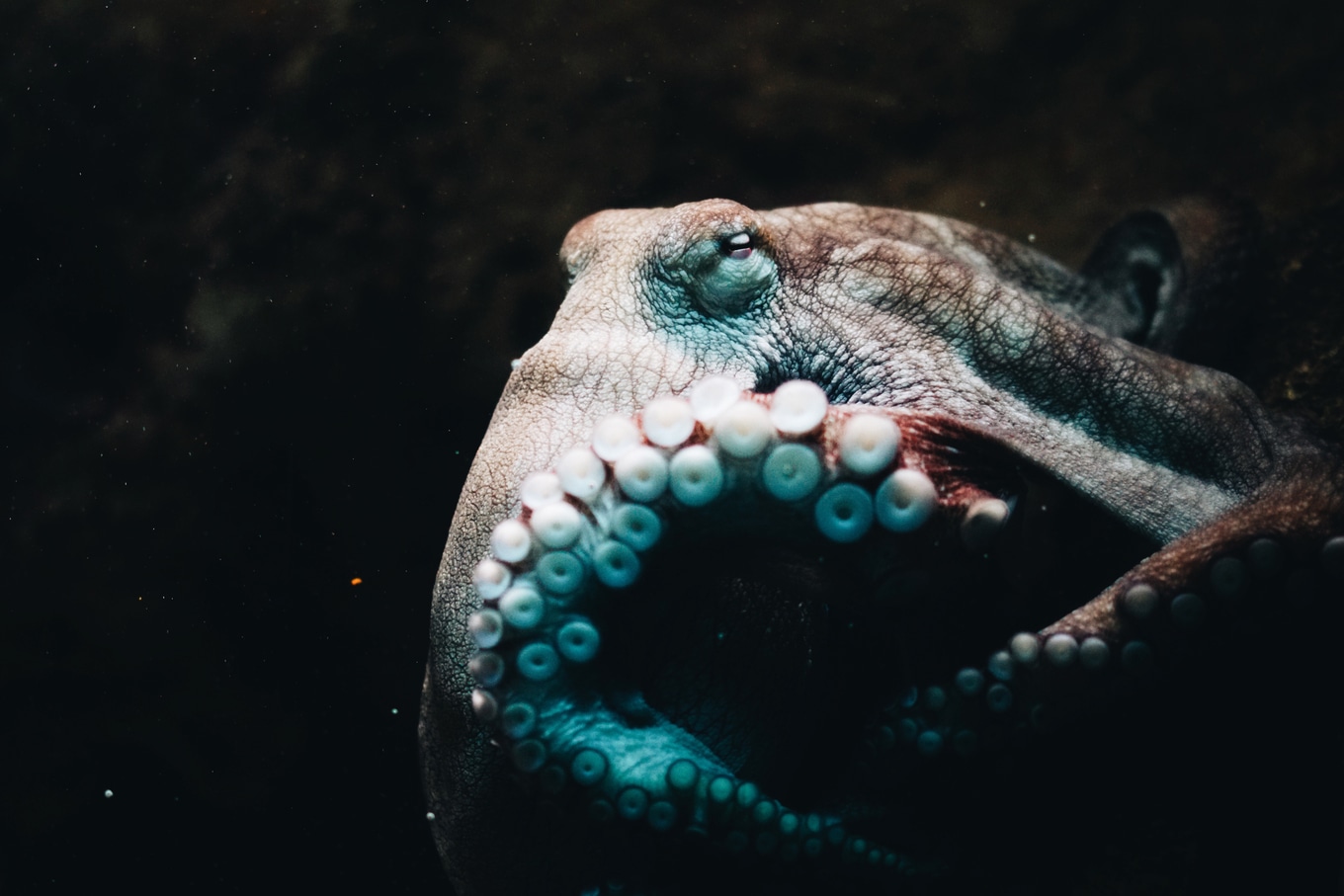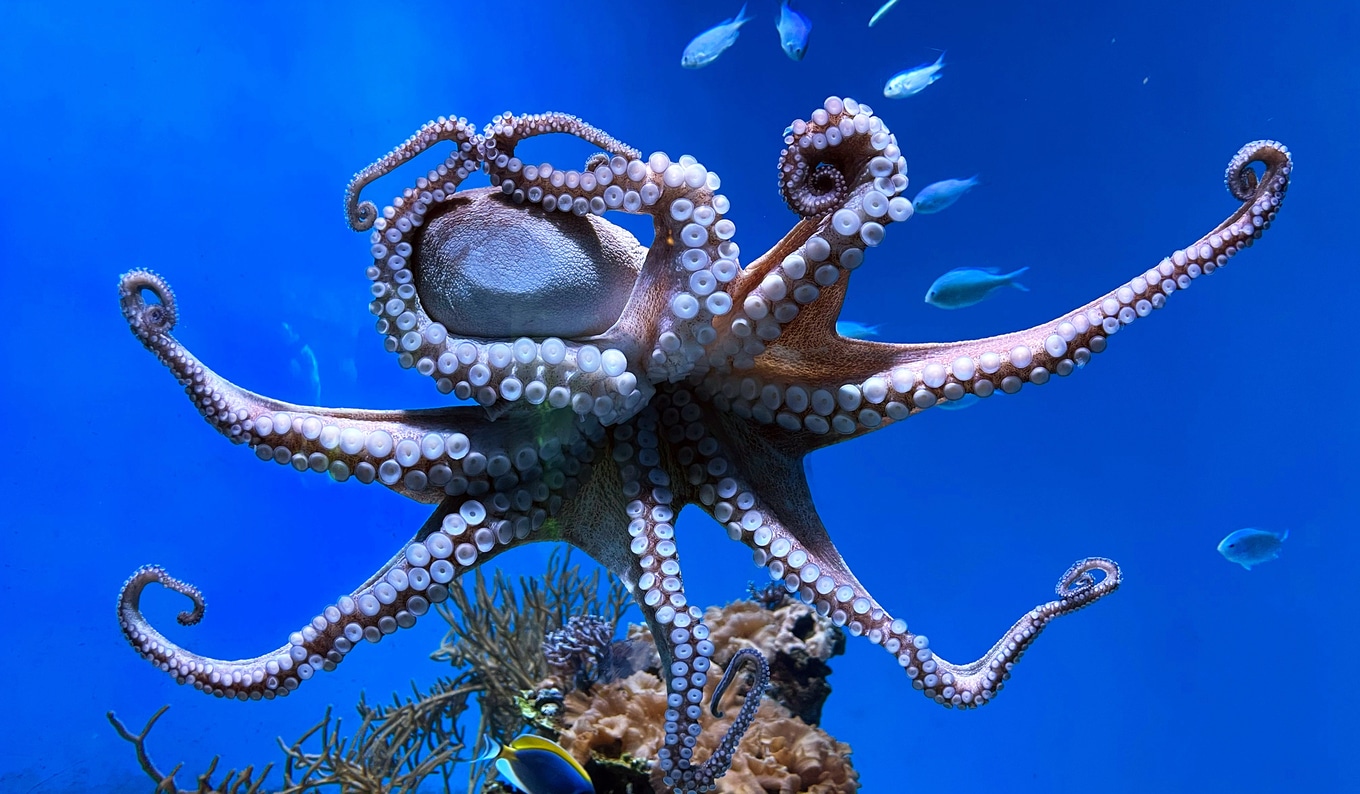Whenever an octopus makes a daring escape from an aquarium through a small hole or using equipment, the world gasps at how intelligent these sea creatures really are. And our emotional connection with them was strengthened by the 2020 documentary My Octopus Teacher. Here, viewers watch filmmaker Craig Foster develop a deep bond with an octopus living in South Africa’s kelp forest.
In the Academy Award-winning film, Foster learns from the intelligent creature as he endures life’s ups and downs, including learning how to better survive after a shark attack. His natural death was a moment of deep sadness but taught Foster and viewers alike about the wonders of life under the sea.
 Unsplash
Unsplash
In 2021, the United Kingdom gave octopuses, along with lobsters, crabs and other marine animals, new protections under its Animal Welfare (Sentience) Bill after a government-commissioned report confirmed that these animals are sentient, intelligent creatures.
“The Animal Welfare Sentiment Bill provides an important guarantee that animal welfare is properly considered when developing new legislation,” Animal Welfare Minister Lord Jack Goldsmith said in a statement at the time. “Science is now clear that decapods and cephalopods can feel pain and so it is right that they are covered by this important law.”
But have we learned enough about octopuses and to protect them from the cruelty of factory farming? That’s the challenge raised by a new report by the Eurogroup for Animals (EFA) and Compassion in World Farming (CWF) as seafood company Nueva Pescanova tries to finalize plans for the world’s first octopus factory farm in Las Palmas on the Spanish island of Gran Canaria.
“Given what we know about how complex and highly intelligent octopuses are and what they need to thrive, even to farm them on an industrial scale,” says Katie Nolan, campaigner for the animal-rights group In Defense of Animals. It is absolutely inexcusable to consider, said in a statement.
“We should instead focus on investing in creating a truly sustainable food system that does not cause further harm to animals, or damage human health and the environment.”
Is octopus factory farming a bad idea?
Nueva Pescanova recently submitted plans for its octopus factory farm to the Canary Islands government’s directorate general of fisheries, where it plans to farm up to a million of the marine animals a year.
The plan outlines 40 to 60 fattening tanks, 550 to 650 settlement tanks, 90 to 100 tanks for newly hatched octopus, and 22 to 36 tanks for breeding. Nueva Pescanova—a resource-intensive land-based operation—has not yet received all the necessary permits to operate and is awaiting approval of an environmental impact assessment in Spain.
Meanwhile, the EFA and CWF released their joint report “Uncovering the Horrible Reality of Octopus Farming” that factory farming octopuses thus causes disastrous consequences for sentient creatures.
 Unsplash
Unsplash
Because the animals are solitary and territorial, farming them in these densities creates conditions for aggression and cannibalism. Nueva Pescanova has acknowledged this—revealing that it expects a mortality rate of 10 to 15 percent—and plans to separate animals by sex and size as a solution.
The factory farm also plans to expose female octopuses to 24-hour light so that the animals avoid light as a defense mechanism against predators during the day. Nueva Pescanova also acknowledges that this is a stress for the octopus.
Carnivores will be fed fishmeal and fish oil, a food source that is unsustainable and environmentally risky. When the octopuses reach slaughter weight, Nueva Pescanova plans to submerge them in an ice slurry to kill them – which has been scientifically proven to be inhumane.
Furthermore, thus the environmental impact of the waste associated with factory farming octopus has not yet been evaluated, nor has the potential diseases originating from a farm like Nueva Pescanova been properly assessed.
“Furthermore, these aquatic environments are completely artificial,” the report said. “This conflicts with the welfare needs of highly intelligent animals such as octopuses who require a variety of stimuli within their habitat.”
In addition to EFA, CWF, and IDA, a growing number of members of the scientific community have strongly opposed the factory farming of octopus.
Outside of Spain, the United States and Japan are also looking to build octopus factory farms. However, Hawaii’s Kanaloa Octopus Farm has closed operations due to lack of proper permits.
Call for closure of octopus factory farms
The new report builds on existing research around the intelligence of octopuses and presents the animal welfare disaster of their factory farming. However, learning that certain animals—such as pigs, cows, chickens, and fish—are conscious and highly intelligent has not been enough to stop their exploitation for food in factory farms in the past.
 Pexels
Pexels
EFA CEO Reineke Hameleers hopes we can save octopuses from the same fate as other food animals before finalizing plans for their suffering.
“Blindly establishing a new agricultural system without considering the ethical and environmental implications is a step in all the wrong directions,” Hamillers said in a statement.
“We call on the EU to include a ban on octopus farming before it sees the light of day, to avoid plunging more sensitive creatures into a living hell,” Hamillers said.
Currently, more than 20,000 people have supported IDA’s campaign to get the Spanish authorities to close the octopus factory farm in Nueva Pescanova.


